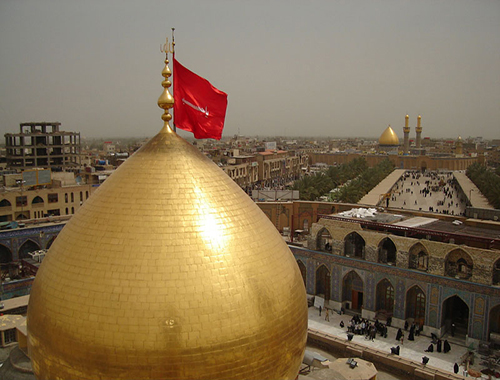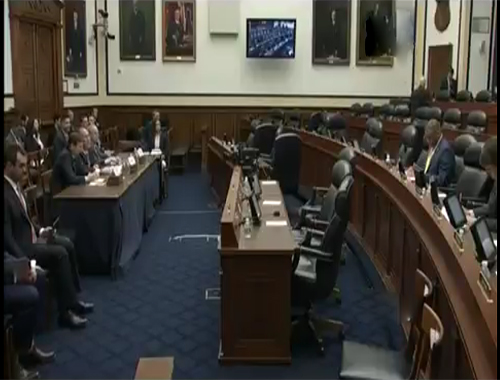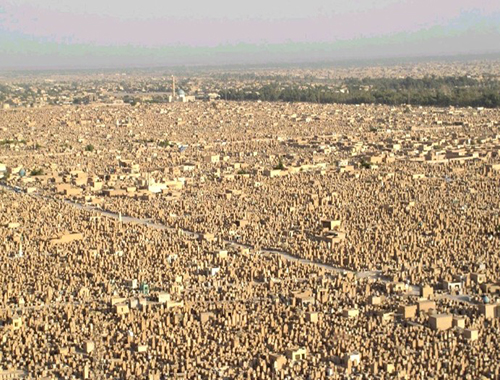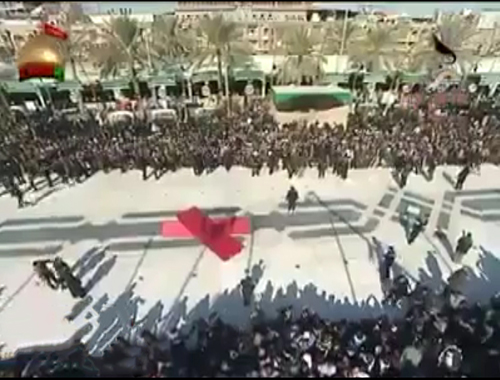Verse65-66
- Details
- Hits: 2728
(65) قُلْ هُوَ الْقادِرُ عَلى أَنْ يَبْعَثَ عَلَيْكُمْ عَذاباً مِنْ فَوْقِكُمْ أَوْ مِنْ تَحْتِ أَرْجُلِكُمْ أَوْ يَلْبِسَكُمْ
شِيَعاً وَ يُذِيقَ بَعْضَكُمْ بَأْسَ بَعْضٍ انْظُرْ كَيْفَ نُصَرِّفُ الْآياتِ لَعَلَّهُمْ يَفْقَهُونَ
(66)وَ كَذَّبَ بِهِ قَوْمُكَ وَ هُوَ الْحَقُّ قُلْ لَسْتُ عَلَيْكُمْ بِوَكِيلٍ
65. " Say: ' He is able to send forth upon you a chastisement, from above you or from beneath your feet, or to confuse you of different parties, and to make you taste the violence of (fighting) one another.' See how We repeat the Signs that they may understand."
66. " And your people have belied it (the Qur'an) though it is the truth. Say: 'I am not a guard upon you '."
Commentary :
Various Chastisements :
In order to state the different ways of training, this verse has laid emphasis on the subject of threatening to the divine punishment. Clearly speaking, as Allah is the most Merciful of all merciful ones, and the protector of those who are without support, He is also the Supreme and the Avenger against tyrants and rebellious ones.
In this verse, the Prophet (p.b.u.h.) has been ordered to threaten the sinners with three sorts of punishment. The chastisements which come from above and from beneath, the chastisement of dispute and the chastisement of fight and blood shedding.
Thus, it commands the Prophet (p.b.u.h.) to say that Allah is able to send retributions from above them, like the punishment upon the people of Lut, stones over the People of the Elephant, Flood of Noah, the Cry upon the People of Thamud, and the Wind against the People of 'Ad. And, today, there are some other retributions like atomic bombs, chemical bombs, and far-range-striking-rockets of various kinds.
And, from the downwards, there are earthquake, splitting or depressing the land, the Pharaoh being drowned, Korah (Croesus) sank into the ground, cholera, plague, famine, hunger, which are brought for you. Or, that He makes you scattered in some separate groups to dispute with each other, and that you taste the bitterness of fighting one another. It says :
" Say: ' He is able to send forth upon you a chastisement, from above you or from beneath your feet, or to confuse you of different parties ' and to make you taste the violence of (fighting) one another.'..."
The phenomenon of dispute and contradiction in speech among a society is so dangerous that it has been counted in the row of heavenly punishments, thunders, and earthquakes. Yes, it is truely so. Moreover, sometimes the destructions which are resulted from disperse and dispute are heavier than those resulted from thunders and earthquakes. It has repeatedly happened that some developed countries have completely been ruined under the inauspicious shade of hypocrisy and disunity. This phrase is counted a warning unto the whole Muslims in the world.
Then, at the end of the verse, in order that they may realize the Truth and return to it, it is added "
"... See how We repeat the Signs that they may understand."
* * * *
The second verse of the verses mentioned above, as well as its following verse, are, in fact, to complete the discussion stated in the former verses abut the invitation to Monotheism, Resurrection, and the facts upon Islam and being afraid of the Divine punishment.
At first, addressing the Prophet (p.b.u.h.), it indicates that his people, viz. Quraysh and the pagans of Mecca, belied his teachings while all of these teachings are right and godly, so that different evidences, accepted through intellect and innate disposition comfirm them. The holy verse says:
" And your people have belied it (the Qur'an) though it is the truth...."
Therefore, their rejection and denial does not decrease anything from the importance of these facts, although the number of opponents and deniers may be large.
Then, the verse continues the statement implying that it is the duty of the Prophet (p.b.u.h.) to communicate the prophecy and he is not responsible that they accept it.
"... Say: ' I am not guard upon you '."
The objective meaning of the Arabic term / wakil/ is 'a person who is responsible to lead an action and who is liable due to others." (1)
* * * *
(1) There are some other phrases mentioned in the Qur'an which convey the same meaning, including : Sura Al-'An'am, No. 6, Verse 107 ; Sura Yunus, No. 10, Verse 41; Sura Az-Zumar, No. 39, Verse 41. and Sura Ash-Shaura, No. 42, Verse 6.











